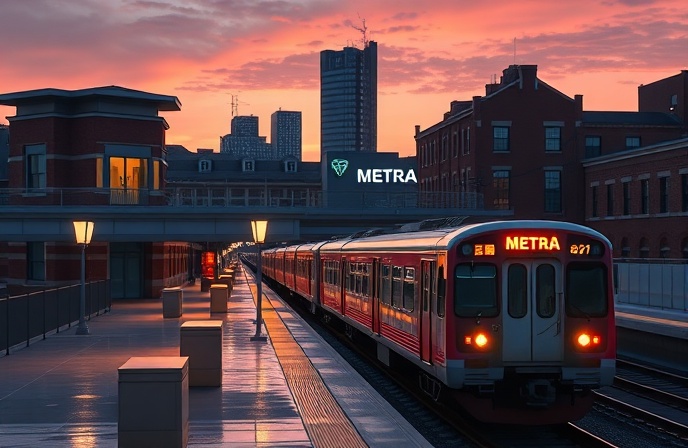Etihad Rail & Herrenknecht: Revolutionizing UAE Tunneling

Etihad Rail and Herrenknecht: A Strategic Partnership for Advanced Tunneling Technology
This article explores the significant strategic partnership between Etihad Rail (the developer and operator of the UAE’s National Rail Network) and Herrenknecht, a global leader in tunnel boring machine (TBM) technology. The collaboration focuses on enhancing the design and construction of tunnels for the expanding UAE National Rail Network. This partnership extends beyond simple technology transfer; it involves a comprehensive knowledge exchange, encompassing training programs for Etihad Rail engineers at the Herrenknecht Academy in Germany, collaborative research into innovative tunneling methodologies, and the sharing of best practices and technical standards. This synergistic approach promises to accelerate the development of the UAE’s rail infrastructure, ensuring efficiency, safety, and the integration of cutting-edge engineering solutions. The implications of this partnership extend beyond the immediate project, impacting the broader landscape of rail infrastructure development in the region and potentially setting a benchmark for future collaborations in the global tunneling industry. The article will delve into the specific aspects of this partnership, analyzing its potential impact on project delivery, cost optimization, and the overall advancement of tunneling technology within the context of the UAE’s ambitious infrastructure goals.
Engineering Expertise and Knowledge Transfer
A cornerstone of the Etihad Rail and Herrenknecht partnership is the commitment to comprehensive knowledge transfer. Etihad Rail engineers will undergo rigorous training at the Herrenknecht Academy, gaining hands-on experience with Herrenknecht’s advanced TBMs and associated technologies. This training program is not limited to operational aspects; it encompasses the entire lifecycle of a tunneling project, from initial geotechnical investigations and design optimization to construction management and project completion. This investment in human capital will significantly enhance the capabilities of Etihad Rail’s engineering team, enabling them to effectively manage and oversee future tunneling projects independently. This knowledge transfer is bidirectional, with Etihad Rail sharing its expertise in regional geology and project-specific challenges, contributing to the development of more adaptable and efficient TBMs for diverse geological conditions.
Advanced Tunnel Design and Construction Techniques
The partnership aims to explore and implement cutting-edge tunnel design and construction techniques. This includes investigating the feasibility of employing different TBM types (e.g., Earth Pressure Balance (EPB) shields, slurry shields) suited to the specific geological conditions encountered along the rail network’s route. Furthermore, the collaboration will focus on optimizing the tunnel construction process through advanced planning and scheduling methodologies, employing Building Information Modeling (BIM) technologies for improved coordination and risk management, and leveraging data analytics to monitor progress and identify potential challenges proactively. This holistic approach to tunnel engineering promises to minimize construction time, reduce costs, and enhance overall safety.
Improving Project Feasibility and Cost-Effectiveness
Through the sharing of technical information and standards, Etihad Rail and Herrenknecht will collaborate to improve the feasibility assessment of tunneling projects. This involves leveraging Herrenknecht’s extensive database of past projects and geological data, combined with Etihad Rail’s localized expertise, to develop accurate cost estimates and realistic project schedules. By optimizing the selection of appropriate TBM technology and construction methodologies, the partnership aims to enhance project cost-effectiveness while minimizing environmental impact. This collaborative approach to project planning is critical to ensure the timely and efficient completion of the UAE’s ambitious rail infrastructure expansion.
Sustainable Practices and Technological Advancement
Beyond cost and efficiency, the partnership also considers the broader implications of sustainable infrastructure development. The collaboration will explore the integration of sustainable practices into the tunnel construction process, minimizing environmental impact through responsible resource management and waste reduction strategies. Furthermore, the partnership will foster innovation in tunneling technology, exploring the potential of using alternative materials, improving TBM efficiency, and reducing energy consumption. This commitment to sustainable development aligns with the UAE’s wider sustainability goals and sets a precedent for environmentally responsible rail infrastructure projects globally.
Conclusion
The strategic partnership between Etihad Rail and Herrenknecht represents a significant advancement in the development of the UAE’s National Rail Network. The collaboration’s multifaceted approach, encompassing knowledge transfer, technological innovation, and a commitment to sustainable practices, will undoubtedly accelerate the construction of efficient and safe rail infrastructure. The training of Etihad Rail engineers at the Herrenknecht Academy is a vital investment in human capital, ensuring long-term capacity building within the UAE’s rail sector. The joint exploration of advanced tunnel design and construction techniques, combined with the focus on optimizing project feasibility and cost-effectiveness, will lead to significant improvements in project delivery. Furthermore, the commitment to sustainable development underscores a forward-looking approach to infrastructure development, aligning with global sustainability goals. This partnership serves as a model for future collaborations between rail operators and technology providers, setting a new standard for excellence and innovation in the global tunneling industry. The successful execution of this partnership promises to not only improve the UAE’s rail infrastructure but also contribute significantly to the advancement of tunneling technology worldwide, influencing future projects across various geographies and challenging geological contexts.




